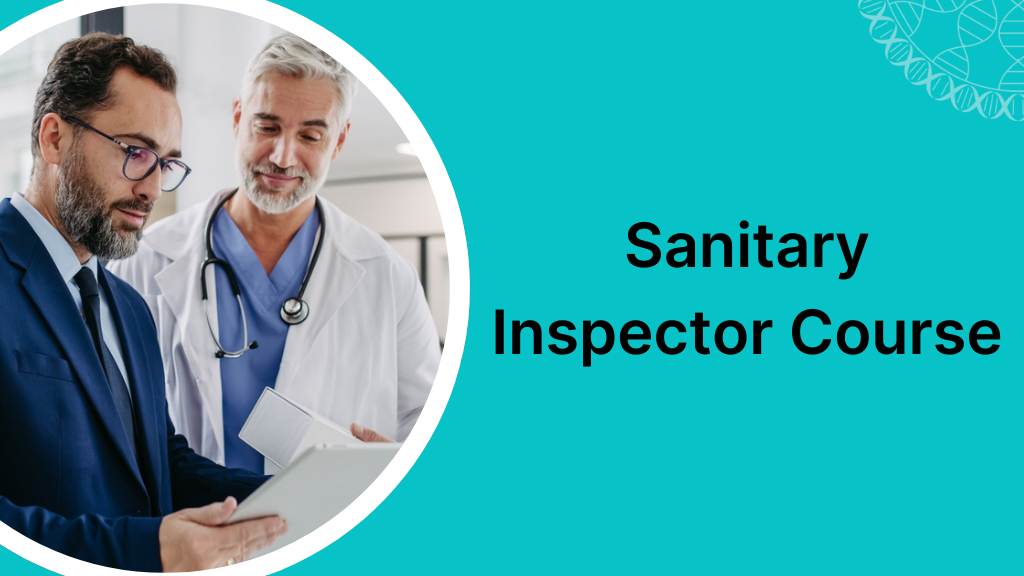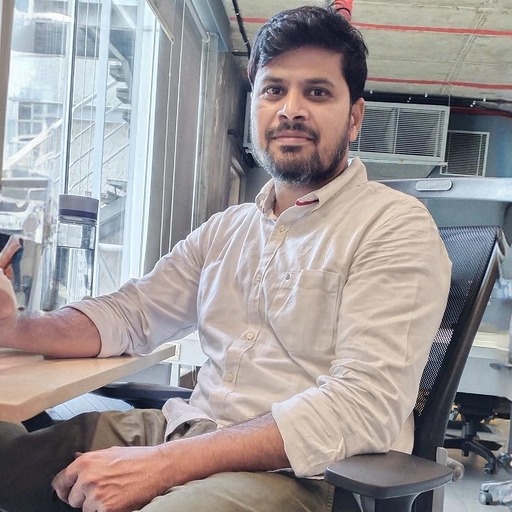
Sanitary Inspector Course: Eligibility, Fees, Syllabus & Career Scope

25-Feb-2025
Sanitary Inspector Course: Eligibility, Fees, Syllabus & Career Scope
Introduction
A Sanitary Inspector Course is designed to train professionals responsible for public health, sanitation, and hygiene. Sanitary inspectors play a crucial role in ensuring clean and safe environments by monitoring sanitation, waste disposal, water quality, and disease control.
This course is ideal for individuals looking to build a career in public health, municipal corporations, and sanitation departments. In this article, we will cover everything you need to know about the Sanitary Inspector Course, including eligibility, syllabus, fees, and career prospects.
What is a Sanitary Inspector Course?
The Sanitary Inspector Course is a diploma or certificate program aimed at equipping students with the necessary knowledge and skills to manage hygiene and sanitation in urban and rural areas. The course covers topics such as environmental health, waste management, epidemiology, and public health regulations.
This program is essential for those aspiring to work in government health departments, municipal bodies, and the private sector, ensuring compliance with sanitation laws and hygiene standards.
Eligibility Criteria
To enroll in a Sanitary Inspector Course, candidates must meet certain eligibility criteria, which may vary depending on the institution offering the course. Below are the general eligibility requirements:
Educational Qualification
- Candidates must have completed 10+2 (Senior Secondary) education from a recognized board.
- Some institutions may require a background in science (Physics, Chemistry, Biology), but it is not always mandatory.
Age Limit
- The minimum age requirement is 17 years.
- The maximum age limit varies depending on the institution but generally falls between 25 to 30 years.
Skills Required
To succeed in this field, candidates should have:
- Strong observational skills
- Knowledge of hygiene and sanitation regulations
- Problem-solving abilities
- Good communication skills
Course Duration
The Sanitary Inspector Course duration varies based on the type of program:
- Diploma in Sanitary Inspection: 1 to 2 years
- Certificate Course in Sanitary Inspection: 6 months to 1 year
- Bachelor's Degree in Environmental or Public Health (Optional Extension): 3-4 years
Most diploma and certificate courses include both theoretical and practical training, ensuring students gain hands-on experience in sanitation and hygiene management.
Course Fees
The fees for a Sanitary Inspector Course vary based on the institution and the level of certification. Below is an estimated fee structure:
- Certificate courses in cosmetology typically cost between INR 10,000 to INR 50,000.
- Diploma courses range from INR 30,000 to INR 1,50,000, depending on the institution and specialization.
- Bachelor’s degree programs in cosmetology have fees between INR 50,000 to INR 3,00,000, varying based on the university and course structure.
- Government institutions often charge lower fees compared to private institutions. Scholarships and financial aid may be available for eligible students.
Syllabus & Subjects Covered
The syllabus of the Sanitary Inspector Course is designed to provide comprehensive knowledge of sanitation, hygiene, and environmental health. Below are the core subjects covered in the course:
1. Public Health & Hygiene
- Introduction to Public Health
- Principles of Hygiene & Sanitation
- Community Health Practices
2. Environmental Health & Sanitation
- Water Supply & Purification Methods
- Waste Management (Solid & Liquid Waste)
- Air & Noise Pollution Control
3. Food Safety & Hygiene
- Food Contamination & Safety Measures
- Inspection of Food Establishments
- Sanitation in Food Processing Industries
4. Epidemiology & Disease Control
- Communicable & Non-Communicable Diseases
- Vector Control (Mosquitoes, Flies, Rodents)
- Preventive Healthcare Measures
5. Occupational Health & Safety
- Workplace Sanitation Standards
- Health Hazards in Industries
- Personal Hygiene & Safety Regulations
6. Municipal Administration & Sanitary Laws
- Government Policies on Sanitation
- Public Health Acts & Regulations
- Role of Sanitary Inspectors in Municipalities
7. Practical Training & Field Work
- Inspection of Public Places (Hospitals, Schools, Restaurants)
- Laboratory Work (Water Testing, Waste Analysis)
- Public Awareness Campaigns
Career Opportunities After Sanitary Inspector Course
After completing the Sanitary Inspector Course, candidates have various career opportunities in government and private sectors. Below are the major job roles:
1. Government Jobs
Sanitary Inspectors can find employment in government sectors such as:
- Municipal Corporations
- Health Departments
- Public Health Engineering Departments
- Pollution Control Boards
- Rural Development Agencies
2. Private Sector Jobs
Private companies and organizations also hire sanitary inspectors for roles such as:
- Environmental Health Officer
- Waste Management Supervisor
- Food Safety Inspector
- Industrial Hygiene Officer
3. NGOs & International Organizations
Sanitary Inspectors can work with NGOs, WHO, UNICEF, and other international health organizations on sanitation projects.
4. Self-Employment & Consultancy
Experienced professionals can start their own sanitation consultancy firms, providing guidance on waste management, hygiene practices, and public health safety.
Salary Expectations
The salary of a Sanitary Inspector depends on experience, job location, and the employing organization. Below is an estimated salary range:
- An Entry-Level Sanitary Inspector can expect a salary between INR 15,000 to INR 30,000 per month.
- An Experienced Sanitary Inspector earns approximately INR 30,000 to INR 60,000 per month, depending on experience and location.
- A Senior Public Health Officer typically receives a salary ranging from INR 50,000 to INR 1,00,000 per month, based on qualifications and expertise.
- Government employees may also receive additional benefits like job security, pension, and medical allowances.
How to Apply for the Sanitary Inspector Course?
Step 1: Research & Choose an Institution
Look for government-recognized institutions offering the Sanitary Inspector Course.
Step 2: Check Eligibility & Admission Process
Ensure you meet the eligibility criteria and check the admission process, which may involve an entrance exam or direct admission.
Step 3: Submit Application & Pay Fees
Apply through the institution’s official website or in person and pay the required fees.
Step 4: Attend Classes & Complete Training
Complete the coursework, attend practical training, and pass the final examination to earn your certification.
Conclusion
The Sanitary Inspector Course is an excellent choice for those interested in public health and sanitation. With growing concerns about environmental hygiene, the demand for trained Sanitary Inspectors is increasing in both government and private sectors. The course offers diverse career opportunities, stable employment, and the chance to contribute to public welfare.
If you are passionate about health, hygiene, and environmental safety, enrolling in a Sanitary Inspector Course can be a rewarding career decision.
Frequently Asked Questions (FAQs) – Sanitary Inspector Course in India
1Q: What is the Sanitary Inspector course all about?
Ans: The Sanitary Inspector course is a job-oriented program that teaches students how to maintain hygiene and sanitation in public places. It covers topics like waste disposal, disease control, and public health standards.
2Q: Who can apply for a Sanitary Inspector course?
Ans: Anyone who has completed 10th or 12th standard (usually with Science) can apply. Some institutes may also ask for work experience in the healthcare or public health field.
3Q: What is the course duration?
Ans: The course duration depends on the level:
- Certificate course: 6 months
- Diploma course: 1 year
- Advanced diploma: Up to 2 years
4Q: What subjects are taught in this course?
Ans: The syllabus includes:
- Basics of hygiene and sanitation
- Health education
- Water and waste management
- Food safety
- First aid and disease prevention
5Q: What are the job opportunities after completing the course?
Ans: After the course, you can work as:
- Sanitary Inspector in government health departments
- Health & Safety Officer in factories or hospitals
- Hygiene Supervisor in schools, hotels, and industries
6Q: Is this course helpful for government jobs?
Ans: Yes, many government organizations like municipal corporations, railway hospitals, and health departments hire sanitary inspectors regularly.
7Q: What salary can I expect as a Sanitary Inspector in India?
Ans: Starting salary ranges between ₹20,000 to ₹35,000 per month. With experience, you can earn ₹40,000 to ₹60,000 or more depending on your job role and location.
8Q: What is the fee for the Sanitary Inspector course?
Ans: Course fees can vary by institution and city. On average:
- Certificate course: ₹5,000–₹15,000
- Diploma course: ₹20,000–₹50,000
9Q: Is practical training part of the course?
Ans: Yes, most courses offer practical sessions and field training in hospitals, health departments, or urban areas to give real-life experience.
10Q: Can I study further after this course?
Ans: Definitely! You can pursue higher studies in Public Health, Environmental Science, or even do specialized health and safety training.

AUTHOR

Related Jobs


